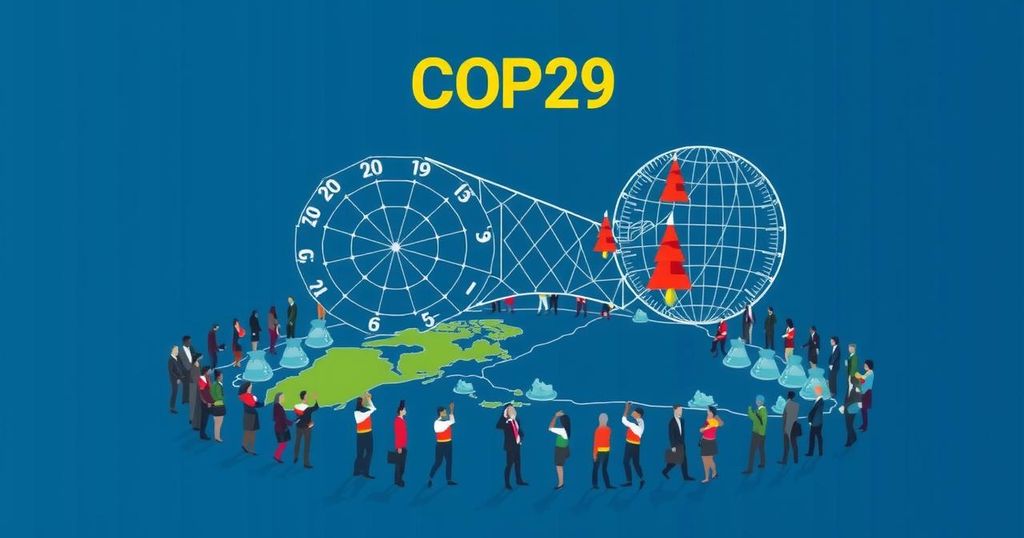COP29 in Baku ended with significant backlash from poorer nations, rejecting climate offers deemed insufficient. The need for a new agreement is vital to address the unique challenges faced by these countries amid climate change. Future negotiations will be critical to redefine international climate commitments.
The COP29 conference concluded recently in Baku, Azerbaijan, where discussions surrounding climate commitments took center stage. A pivotal aspect of the conference involved the rejection of existing climate proposals by several developing nations, as they argued that these offers lacked sufficient support and resources for effective climate action. This rejection signifies the urgent need for a new agreement that adequately addresses the concerns and aspirations of poorer countries facing the brunt of climate change-related challenges. The upcoming negotiations will be crucial in shaping the future of international climate policy.
The COP29 conference is part of ongoing global efforts to combat climate change, providing a platform for nations to negotiate and develop agreements that align with the goals set forth in previous conferences. Among these objectives, significant attention is given to climate financing, particularly for developing countries that require assistance to implement sustainable practices and initiatives. The rejection by poorer nations of key climate offers highlights the disparities in expectations and the requirement for a cooperative framework to facilitate genuine progress.
In summary, the COP29 conference underscored the complexities surrounding climate negotiations, especially the discontent expressed by developing nations regarding current proposals. This situation necessitates a comprehensive reassessment of climate agreements to ensure that they not only meet the needs of wealthier nations but also provide substantial support for less affluent countries. As the international community prepares for renewed discussions, the path forward will be contingent upon a commitment to inclusivity and equitable solutions.
Original Source: www.euractiv.com






